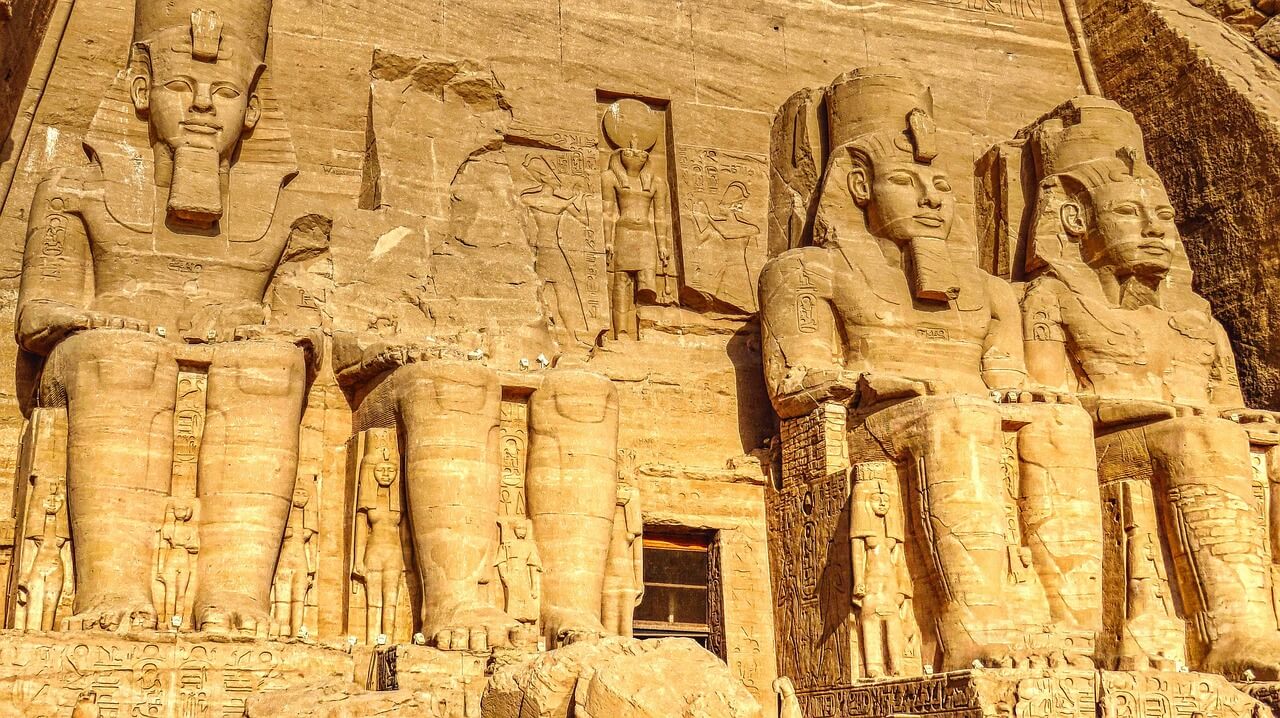Types of attractions in Abu Simbel
Abu Simbel, a stunning destination in Egypt, boasts a unique blend of historical, natural, and cultural attractions that draw travelers from around the globe. Known for its majestic temples, rich history, and mesmerizing landscapes, the city offers a variety of experiences for every type of visitor.
HistoricalThe historical significance of Abu Simbel is unmatched, primarily due to its iconic temples built during the reign of Pharaoh Ramses II. The Great Temple is dedicated to the sun god Ra, showcasing grand sculptures and intricate carvings that tell tales of its ancient past.
NaturalAbu Simbel is not only about human-made wonders; the surrounding landscape, featuring the beautiful Lake Nasser, provides breathtaking views and opportunities for nature enthusiasts to engage in bird watching and boat tours.
CulturalThe rich culture of ancient Egypt comes alive in Abu Simbel, where festivals and religious practices still echo through time. Visitors can learn about the Nubian culture through local crafts and food, enhancing their experience.
MuseumsAlthough small, the Nubian Museum offers insight into the heritage of the Nubian people and the history behind the temples, offering a deeper understanding of the region's significance.
EntertainmentWhile Abu Simbel is primarily known for its historical attractions, visitors can also enjoy various entertainment options, including traditional Nubian music and dance performances that reflect the vibrant local culture.
Must-see landmarks in Abu Simbel
The landmarks of Abu Simbel are iconic, each telling a story that defines the city's history and identity. These structures, carved from solid rock and adorned with intricate engravings, are a must-visit for anyone exploring this remarkable destination.
- Great Temple of Ramses II: This colossal structure features four massive sitting statues of Ramses II, symbolizing his power and reverence for the gods.
- Temple of Hathor: Dedicated to the goddess Hathor, this temple showcases beautiful hieroglyphs and serves as a testament to Ramses II’s devotion to his queen, Nefertari.
- Lake Nasser: An artificial lake that offers stunning views and a chance to engage in boat tours, surrounded by the picturesque desert landscape.
- Abu Simbel Sound and Light Show: A captivating evening experience where the history of the temples comes alive through a narrated light display.
- Nubian Village: A charming area where visitors can experience traditional Nubian life and culture firsthand.
Attractions for families and kids
Abu Simbel is a wonderful destination for families, offering activities and attractions that children will love. The combination of history, culture, and nature makes it easy to engage children’s curiosity and excitement.
- Lake Nasser: Families can enjoy picturesque boat rides on Lake Nasser, offering kids a chance to explore the natural beauty and wildlife of the area.
- Abu Simbel Temples: Exploring the temples can be an exciting adventure for kids, sparking their imagination and interest in ancient history.
- Nubian Village Visits: Engage with local culture by visiting a Nubian village, where children can learn about traditional music and join in on local crafts.
- Parks and Picnic Areas: Some parks around the temples are perfect for picnics, allowing families to relax while surrounded by breathtaking views.
- Interactive Cultural Performances: Participate in traditional music and dance, providing a fun and educational experience for the whole family.
Summer and winter attractions
Abu Simbel transforms beautifully with the seasons. Summer is vibrant with energy, while winter provides a cooler climate, perfect for exploration. Each season offers unique attractions and activities worth experiencing.
SummerDuring the summer months, Abu Simbel experiences warm weather, making it ideal for early morning and late afternoon visits to the temples. The bright sun illuminates the intricate carvings beautifully. Lake Nasser is bustling with activity, where families can enjoy boat rides, fishing, or simple relaxation by the lakeside.
WinterWinter brings milder temperatures, making it comfortable for sightseeing. The temples are less crowded, allowing visitors to appreciate them in peace. The annual Sound and Light show draws a larger crowd during these months, enchanting visitors with its captivating narratives about the ancient history of the temples.
Visitor information and tickets
Planning your visit to Abu Simbel is made easier with accessible information regarding opening hours, ticket prices, and guided tours. Understanding this can enhance your sightseeing experience and help you make the most of your trip.
- Opening Hours: 6 AM - 6 PM (April to September), 7 AM - 5 PM (October to March).
- Ticket Prices: Approximately 200 EGP for adults, 100 EGP for children (prices may vary).
- Free Attractions: Enjoy outdoor areas around the temples without any entry fee.
- Guided Tours: Consider booking a guided tour for an enriched knowledge experience; prices vary depending on length and group size.
- Best Time to Visit: Early mornings and late afternoons offer the best lighting for photographs and cooler temperatures for exploration.
Photography and tourist info centers
Capturing the essence of Abu Simbel through photographs is a delightful experience, with numerous picturesque spots. Additionally, tourist information centers provide valuable resources for navigating the area.
- Best Photo Spots: The front of the Great Temple offers iconic shots, especially during sunrise or sunset.
- Photography Rules: Visitors should respect the sites and avoid using flash photography inside the temples.
- Tourist Info Center: Contact: Tourist Info Center: +20 100 123 4567, Address: Main Road, Abu Simbel, Working Hours: 8 AM - 5 PM.



